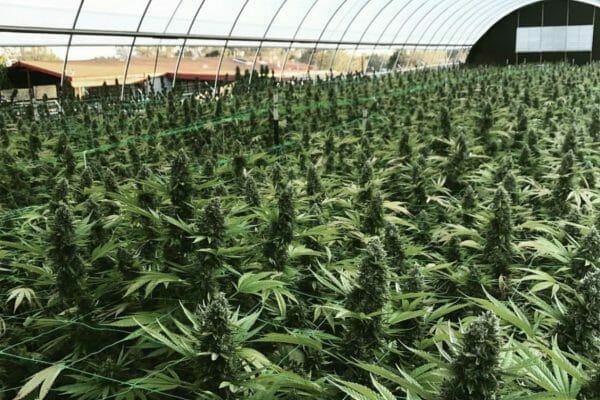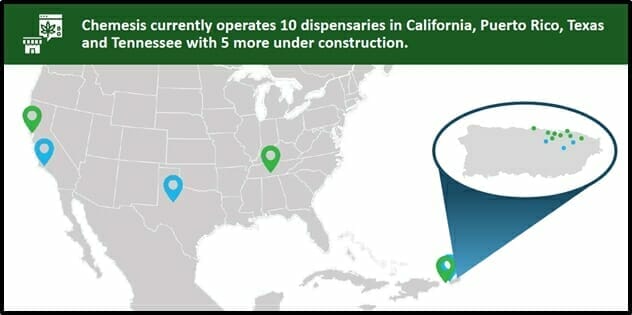Chemesis International (CSI.C) is spinning out its Colombia based cannabis company, La Finca Interacviva-Arachna MED SAS, into a wholly owned subsidiary through a plan of arrangement under the Business Corporations Act.
Chemesis shareholders get better value through the company’s assets in Colombia, presently held by La Finca, by transferring those assets into a separate entity and managing accordingly. The spinout company will compete in the Latin American cannabis industry as the regulatory environment in the area progresses.
And that’s really the crux of the matter—regulations and licensing.
Regulations and licensing
The regulatory environment in Colombia is one of shifting sands and uneven ground for small and mid-sized cannabis operations, which are already hampered by the economic downturn for both the cannabis industry in the summer of last year, and now with COVID-19. And it’s not like the government of Colombia has been exactly warm to the idea of a legal cannabis industry.
Still, La Finca’s licenses allow the company to commercially sell biomass and cosmetic finished products, and while the company states that their licenses are up to date and valid, they’re going to need more if they’re going to commercialize and export, including obtaining certain certifications and registrations.
The La Finca licenses allow the company to do the following with non-psychoactive cannabis:
- production of seeds and cultivation of cannabis plants;
- fabrication of derivatives;
- storage, transportation and distribution of products;
- use and possession for industrial and scientific purposes.
- The licenses also allow the company to commercially sell biomass and cosmetic finished products.
Commercialization, for example, is going to involve completing the Pruebas de Evaluacion Agronomica – Agronomic Evaluation Trials (PEA) and get a registered cultivar certification from the Colombian government. The PEA process includes multiple stages, including seed development through a growth cycle in various locations throughout Colombia, followed by rigorous performance and potency testing.
The PEA process takes significant capital investment and takes anywhere between 12-18 months to complete, and that’s dependant on the cultivation and harvest process and the speed of regulatory approvals.
That’s likely the real reason Chemesis is effecting this spinout, so they don’t have to wait another year to a year and a half before this international arm becomes profitable. And that makes sense—it’s not like the cannabis industry hasn’t been bleeding out for months, and especially now given the downturn due to COVID-19—maybe putting the non-functioning arms on the back burner isn’t a bad play.
La Finca
La Finca has been around since 2014 as a small-scale legacy grow operation using a decentralized model, which empowered farmers through it’s non-profit hemp-growers association. Farmers use La Finca’s seed, and receive training from the association. They’re asked to commit to sustainable agricultural guidelines pushed by the Food and Agriculture Organization (FAO), which is an arm of the United Nations.
Latin America has a long and sad history of colonial oppression, and Colombia is no stranger to land grabs and forced displacements, as farmers are pushed off their land to make way for both legal and illegal operations. La Finca wanted to get away from that model. Instead, the company didn’t buy the land they use to farm, but instead employed the farmers, letting them keep their land and a stake in the profits, and treated them like equals.
La Finca’s management has the ambitious goal of taking the company’s hemp global, and why not? The country has become a major source for medical cannabis in recent years, and they have free-trade agreements with the European Union and the United states, and their low labour costs and ideal growing conditions are considered quite attractive.
The LATAM Cannabis Report estimates the region will have a market value of US $4.2 billion by the year 2028. Furthermore, the report expects Colombia to have a market value of US $664 million in the same time frame. Colombia’s large market value is attributed to its large population, cost efficiency, and free trade agreements with countries around the world.
When the arrangement is complete, the SpinCo will hold 100% interest in the Colombia assets held by La Finca, and Chemesis will concentrate on advancing its cannabis operations in the United States and Puerto Rico.
—Joseph Morton







